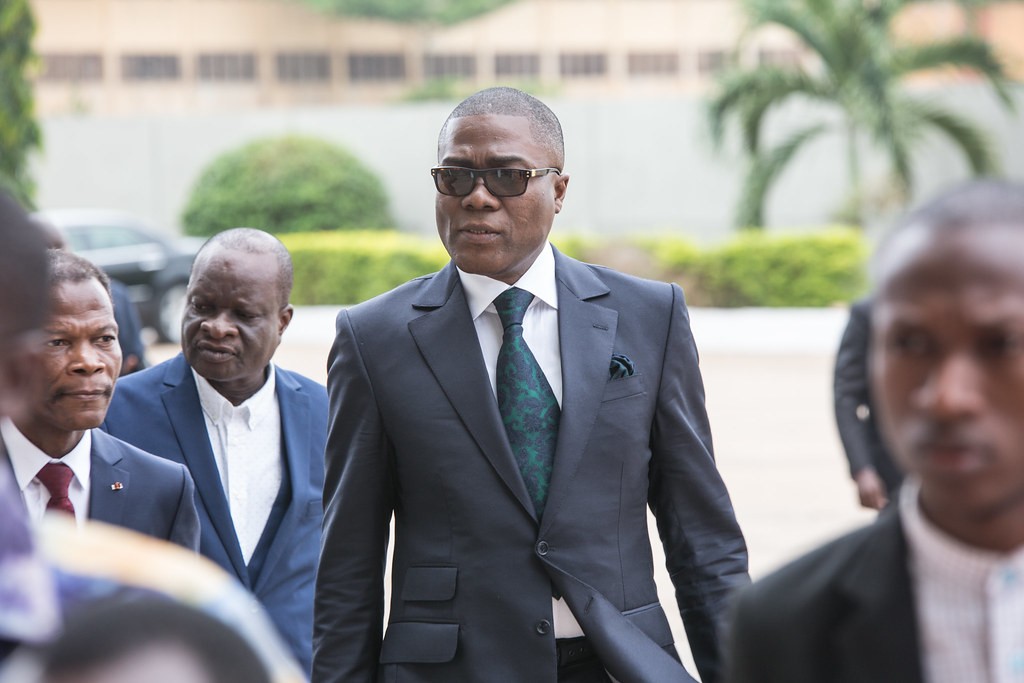Political shockwaves in Benin: Close confidant of President Talon, Olivier Boko, arrested in mysterious circumstances

Political shockwaves in Benin: Close confidant of President Talon, Olivier Boko, arrested in mysterious circumstances
Benin has been thrust into political uncertainty following the arrest of Olivier Boko, a powerful businessman and long-time confidant of President Patrice Talon.
Boko was reportedly detained in the early hours of September 24, 2024, in the capital, Cotonou, under unclear circumstances.
His sudden arrest has ignited widespread speculation and intrigue, as he was viewed by many as a possible successor to Talon in the 2026 presidential election.
Key Businessman with Strong Ties to President Talon
Olivier Boko, 60, is a prominent figure in Benin’s economic landscape, having built a thriving business empire through his company, Denrées et Fournitures Alimentaires (DFA).
Despite never holding an official government position, his close friendship with President Talon has afforded him considerable influence over both the political and business spheres in the country.
Boko’s political ambitions have come to the fore in recent months, with suggestions that he could run for the presidency when Talon’s second term ends in 2026.
This speculation has reportedly caused tensions between the two men, fueling rumors of a power struggle.
Arrest Shrouded in Mystery
Details surrounding Boko’s arrest remain unclear. According to sources, he was apprehended by individuals claiming to be from the criminal brigade early on September 24.
However, neither Benin’s judicial authorities nor the police have confirmed his detention, adding to the mystery and sparking further speculation.
Boko’s arrest was reportedly followed by the detention of Oswald Homeky, a former Minister of Sports and close ally.
The absence of any official statement from the government has led to widespread speculation about the motivations behind the arrest.
Observers are questioning whether it was a politically motivated move aimed at curbing Boko’s rising influence or if it is connected to his business dealings.
Political Ambitions at the Heart of the Arrest?
One of the leading theories behind the arrest points to Boko’s growing political aspirations.
Over the past several months, various political groups and civic organizations have openly endorsed his potential candidacy for the 2026 presidential election, positioning him as a possible successor to President Talon.
Notably, Oswald Homeky, who was removed from his ministerial post after expressing support for Boko, appears to be a key figure in this unfolding drama.
Boko’s potential candidacy seems to have unsettled the political dynamics at the top of Benin’s leadership.
While his long-standing friendship with Talon is well-known, his emergence as a contender for the presidency may have strained their relationship, potentially contributing to his arrest.
Rising Tensions Ahead of 2026 Election
The arrest of Olivier Boko comes at a time of increasing political tension in Benin as the country approaches the 2026 presidential election.
Under Benin’s constitution, President Talon is not permitted to seek a third term, leading to a reshuffling of alliances and ambitions within the ruling elite.
Boko’s arrest could signal the beginning of a more intense period of political maneuvering as potential candidates vie for power.
If Boko and Homeky remain in custody without any official explanation, the situation could escalate, raising concerns about possible unrest among their supporters.
Already, Boko’s backers have called for his release, and a protracted detention could deepen public dissatisfaction, especially given the lack of transparency from the authorities.
As the 2026 election draws closer, Benin’s political landscape appears increasingly volatile, with the arrest of Olivier Boko offering a glimpse into the complex power struggles that may lie ahead.
About The Author
dailymailafric
I am an avid African news observer, and an active member of Daily Mail Africa.
I’m Passionate about staying informed on diverse topics across the continent,
I actively contribute to publishing on political, economic and cultural developments in Africa.



